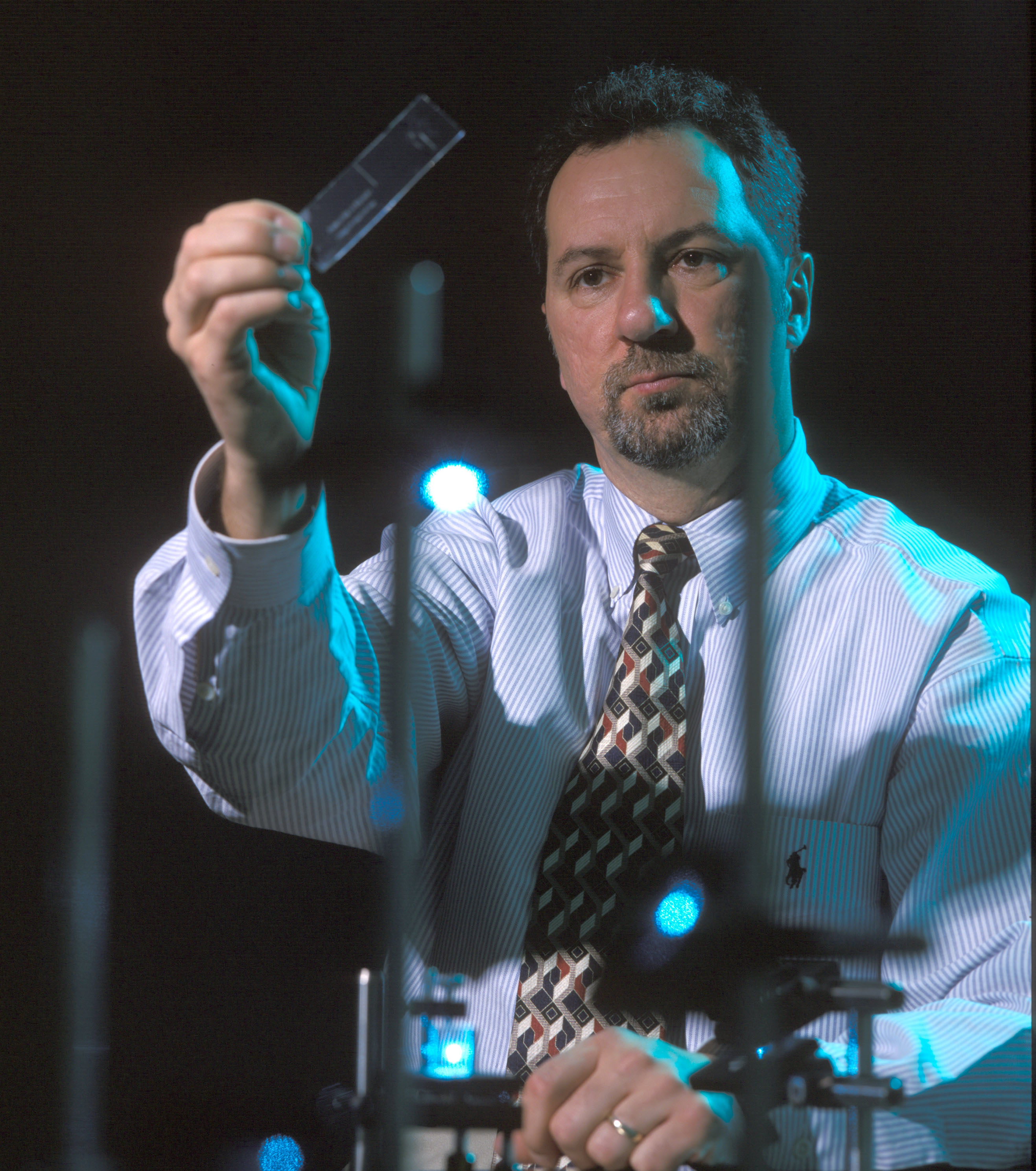Listen to the UVA Today Radio Show report on this story by Fariss Samarrai:
June 8, 2010 — University of Virginia start-up company MicroLab Diagnostics Inc. has been acquired by ZyGEM Corp. Ltd., a biotechnology company specializing in DNA extraction and testing solutions.
MicroLab will continue to operate in Charlottesville as a new business unit of the company, which also has offices in California and New Zealand.
Founded in 2003 on technology developed by U.Va.'s James P. Landers, MicroLab uses lab-on-a-chip technology to miniaturize and streamline the chemical processes involved in biochemical analysis, including DNA testing.
While traditional DNA testing requires a laboratory setting, three separate instruments and a period of five to 10 hours to prepare, purify and test the sample, MicroLab's microfluidic chip technology simplifies the process. Using a single device smaller than a credit card, MicroLab's innovative technology has the potential to deliver accurate DNA results in the lab or in the field in under an hour.
"Our vision at MicroLab is to develop microfluidic chips capable of transforming DNA testing from a complex and costly process into one that is fast, flexible, affordable and widely accessible," said Landers, a professor of chemistry in the College of Arts & Sciences who holds joint appointments in mechanical engineering and pathology.
Landers now also serves as chief scientific officer for ZyGEM, which markets DNA extraction reagents used in traditional DNA testing.
"ZyGEM brings us DNA extraction and detection technology that is an ideal fit with our microchips, enabling us to achieve a seamless sample-to-answer solution with broad market applicability," Landers said.
Quickly delivering results and requiring only a small drop of sample material, MicroLab's microfluidic chips are particularly well suited for applications such as forensics, biodefense, point-of-care diagnostics and food pathogen testing. In addition, the technology's closed system significantly reduces opportunity for human error and contamination.
"Dr. Landers and his collaborators identified an important unmet need facing biological testing today and invented a brilliant solution applicable to many fields," said Miette H. Michie, executive director and CEO of the U.Va. Patent Foundation, which patented and licensed the U.Va. discoveries. "We are so pleased to see this innovative University of Virginia technology taking another big step along the path to the marketplace while it continues to be developed here in Charlottesville."
ZyGEM president and CEO Paul Kinnon said the company expects to launch a commercial product based on the microfluidic chip technology in 2011.
"Marrying ZyGEM's unique assays and reagents with the revolutionary microfluidic chips developed by Dr. Landers and his colleagues at the University of Virginia will enable us to bring the power of DNA detection to a host of applications where its use has been limited by accessibility, complexity, time and cost," Kinnon said. "Given its breadth of potential applications, we intend to rapidly develop and commercialize our new platform with the help of selected partners."
About the University of Virginia Patent Foundation
The University of Virginia Patent Foundation is a not-for-profit corporation that serves to bring U.Va. technologies to the global marketplace by evaluating, protecting and licensing intellectual property generated in the course of research at U.Va. The Patent Foundation reviews and evaluates nearly 200 inventions per year and has generated approximately $85 million in licensing revenue since its formation in 1977.
Media Contact
Article Information
June 8, 2010
/content/university-virginia-biotech-start-microlab-diagnostics-acquired-zygem

